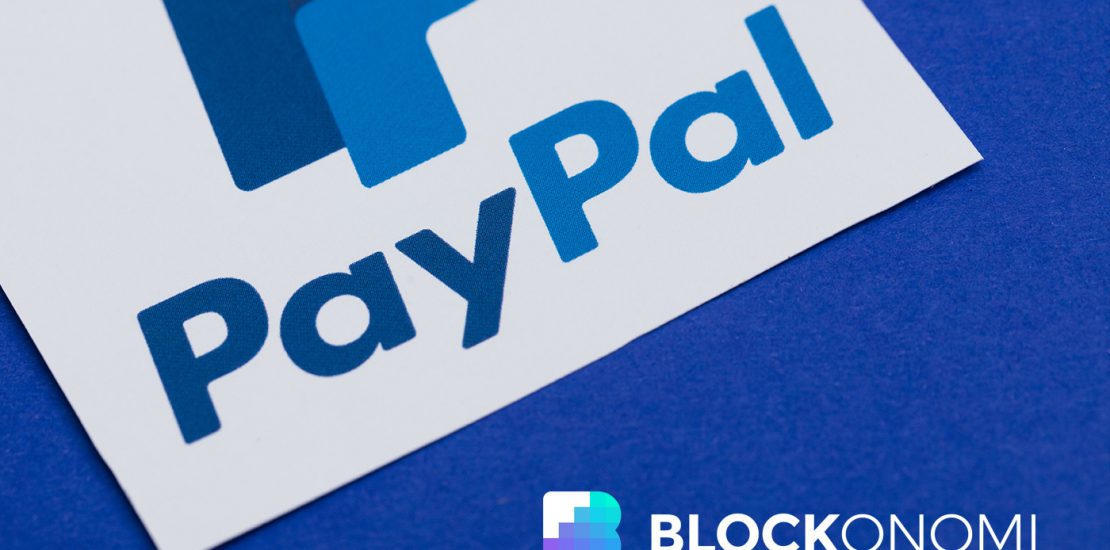- March 31, 2021
- Posted by: admin
- Category: BitCoin, Blockchain, Cryptocurrency, Investments


PayPal, the digital payment platform launched a new crypto-based service to allow US customers to pay with cryptocurrency at millions of online businesses: Checkout With Crypto.
With this new feature, customers can convert their cryptocurrency to fiat currency at checkout without incurring additional fees, facilitating the acquisition of goods and services for cryptocurrency holders.
Dan Schulman, PayPal’s president and CEO, referred to the new feature by stating:
“As the use of digital payments and digital currencies accelerates, the introduction of Checkout with Crypto continues our focus on driving mainstream adoption of cryptocurrencies while continuing to offer PayPal customers choice and flexibility in the ways they can pay using the PayPal wallet. Enabling cryptocurrencies to make purchases at businesses around the world is the next chapter in driving the ubiquity and mass acceptance of digital currencies.”
By offering users the option to use cryptocurrency or fiat on checkout, PayPal is taking advantage of the increasing popularity of cryptocurrencies, with the payment giant becoming one of the first major players to offer such a feature.
Checkout With Crypto will support Bitcoin, Bitcoin Cash, Ethereum, and Litecoin at the time of launch, with only one of them being available to pay at any given time.
The selected currency will then be converted to fiat if enough funds are available, with no fee being charged and all of the benefits PayPal offers its users when paying with fiat.
Allowing Merchants to Benefit From Crypto Without Holding it
While the acceptance of cryptocurrency as a payment method has been on the rise over the last years, many merchants are still skeptical or unable to join the bandwagon, preventing interested customers from using digital currency to pay for their products and services.
PayPal’s new features will allow these merchants to benefit indirectly from crypto while receiving US Dollars as payment, creating new opportunities for all parties involved in a seamless manner.
As the feature does not result in customers or merchants having to pay extra fees, it works as a natural extension of the platform that has already been in use by millions of users around the world.
With companies like Tesla starting to accept Bitcoin and other cryptocurrencies as a valid payment method, it is expected for more companies and payment platforms to offer similar alternatives to their users, further boosting the adoption of cryptocurrencies.
PayPal Keeps Integrating Crypto Into Its Platform
The addition of the Checkout With Crypto is only the latest move from PayPal when it comes to integrating cryptocurrency into its portfolio of services and features.
Earlier in October of 2020, the company announced that US users would be able to buy and store their crypto using the PayPal app.
Back then, the company added that it would be adding crypto payment features for US customers and expanding the Crypto features to users around the world, with the first of these commitments now being a reality.
A Big Shift for the Company
The addition of crypto capabilities back in 2020 was the result of a partnership with Crypto brokerage platform Paxos, which allowed the company to get the first license for such a service issued by the New York State Department of Financial Services,
It is expected that the new country to receive these features will be the United Kingdom as the company said back in February that it would be making the crypto capabilities available for users in the country in the next months.
While PayPal experienced backlash from the crypto community when it first introduced the “Buy and Hold Crypto” feature due to the inability of users to transfer their crypto holdings off their accounts.
The addition of crypto features is sure to have a positive impact on cryptocurrency adoption by creating new use cases and facilitating their use.
The post PayPal Doubles Down On Crypto With New Checkout Feature appeared first on Blockonomi.
